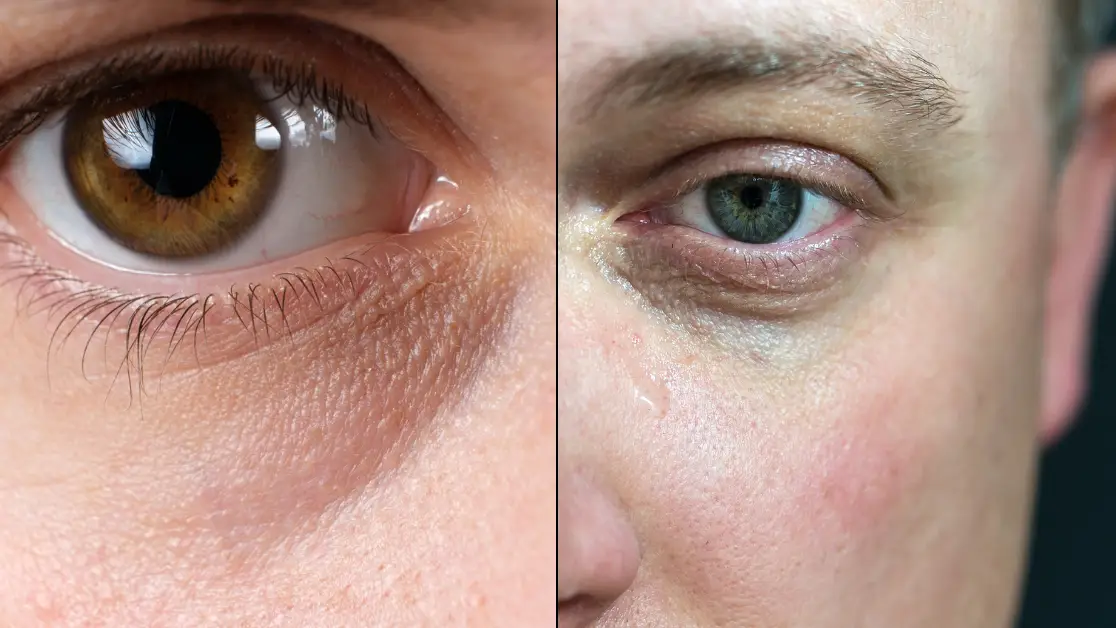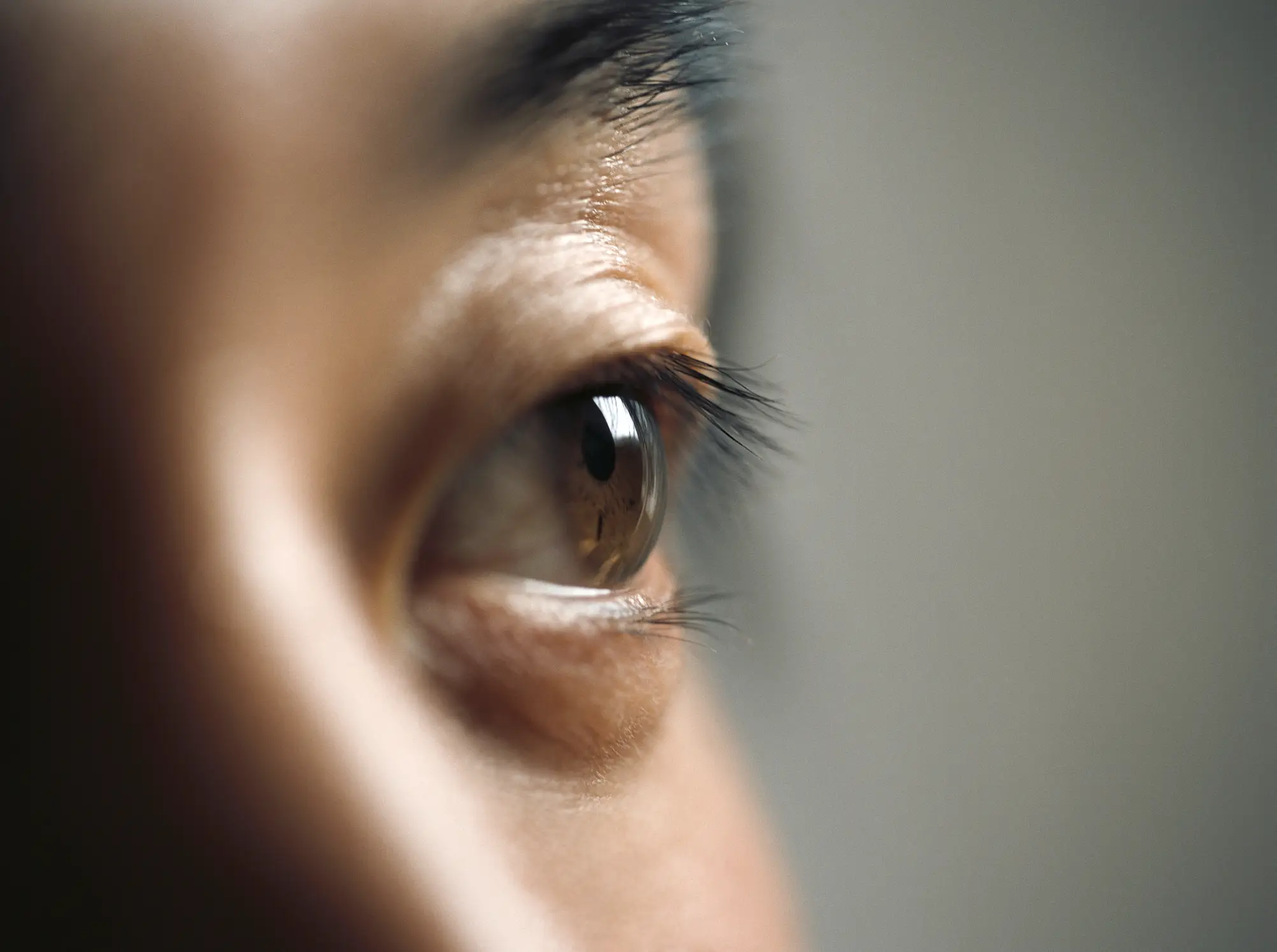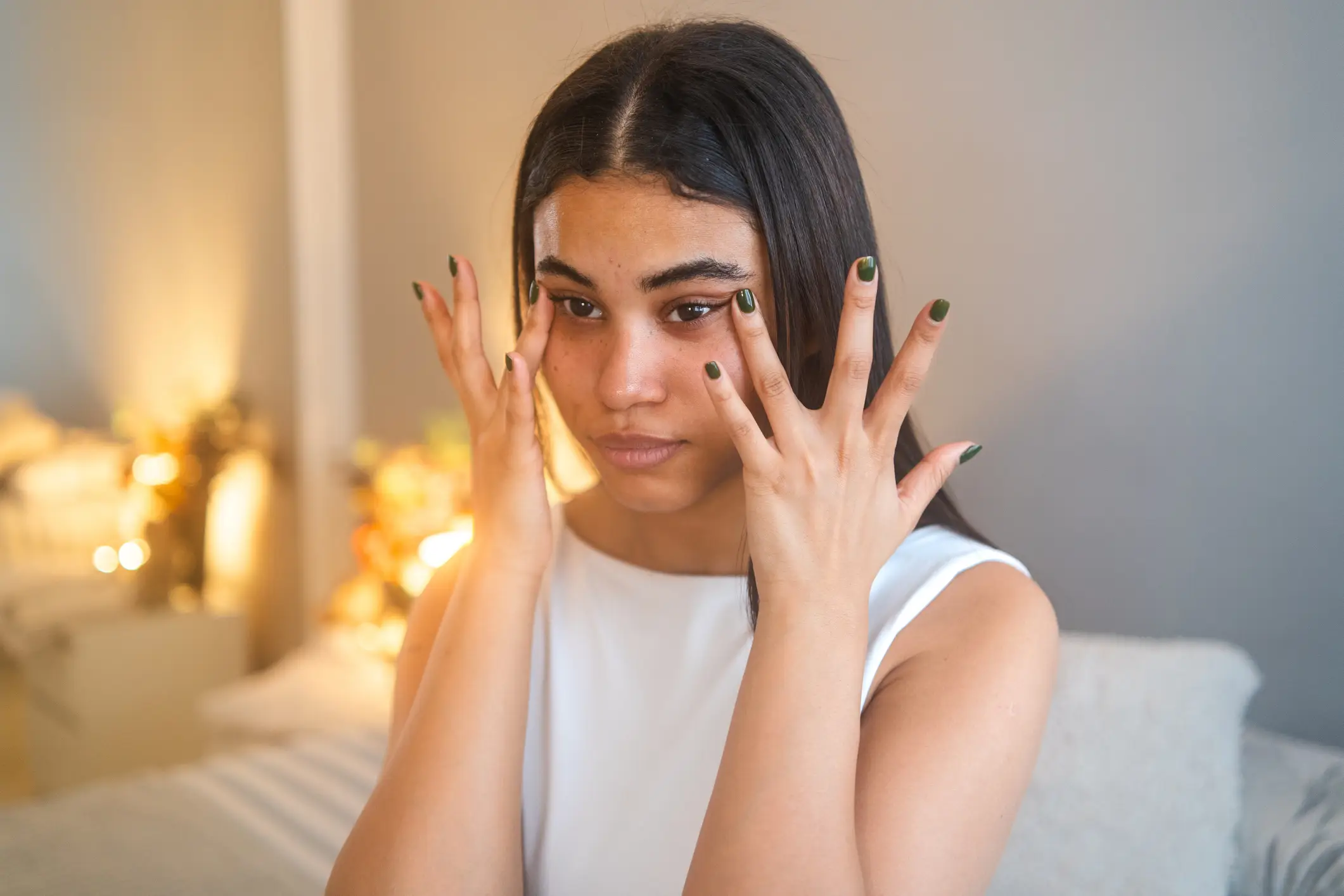
Looking in the mirror first thing in the morning to find that you have dark circles is an unwelcome surprise, but it's not all down to tiredness, according to an expert.
Despite popular belief, poor quality or lack of sleep isn't responsible for the look, and though social media might lead you to believe that any single approach will help to treat them, this isn't always the case.
Dark circles are a fairly complex issue that can be caused by a number of factors, and they have been highlighted by some dermatologists.

What is the main cause of dark circles around your eyes?
According to dermatologist Morgan Rabach, MD, a number of factors can contribute to them, explaining: "Dark circles can be due to the thin skin under the eyes which shows blood vessels, shadowing if the under eye is hollow or from darkening of the skin itself."
Advert
However, the health professional insists that each cause of the undesired skin condition is paired to a different treatment or solution, and along with a few other skin experts, eight causes for dark circles have been highlighted for us to better understand it.
Age
One of the major reasons behind it all could be a loss of volume in the facial area, something that goes as Mother Time does her work.
Speaking to byrdie, Courtney Rubin, MD says: “Underneath the eye is a special pillow of soft tissue called the SOOF (suborbicularis oculi fat).
“Over time, this pillow of tissue shrinks and descends, leading to a decrease in the natural volume of the under-eye, and the creation of a shadow. This is one of the most common causes of dark circles."
Reza Tirgari, MD, a cosmetic surgeon, added that skin under the eye and skin becomes thinner with age, and so the deeper capillary bed becomes more noticeable, giving a darker appearance to the area, which is why some people get fillers.
Dehydration
I know it sounds like an old cliché, but water does make up 60 percent of our bodies, after all.
“If you are seriously dehydrated, your body’s tissues will start to shrink, including your skin and the delicate tissue under the eyes,” Dr. Rubin revealed.
It is advised that, particularly if you're in your 20s, that you drink a sufficient amount of water before getting any cosmetic work done, and no, coffee and tea don't count towards properly hydrating yourself.

Lack of sleep
This is the most commonly believed cause of dark circles, as it can happen to anyone, regardless of age.
Dr. Tirgari explains: “It always helps to sleep at the same time every evening so that your body's own circadian rhythm can get used to a regular schedule and prevent insomnia.”
She also added that a hectic or restless schedule can lead to dark circles.
Strain on your eyes
It doesn't just affect your vision, as dermatologist Alan Parks, MD says that it can affect your under-eye looks as well, adding: “When you struggle to see something and strain your eyes, your blood vessels enlarge under your skin and show through as dark circles more prominently.”
He advised people that may have this worry to get their eye prescription checked, because straining your eyes regularly is never a good thing.
Possible contact dermatitis
If the skin under your eyes are particularly thin, Dr. Rubin says that it's a sensitive area for those with contact dermatitis, also known as those that get irritation from personal care products.
It can apparently leave post-inflammatory changes called 'post-inflammatory hyperpigmentation', which she reveals can be addressed through patch testing, which is a special type of skin test that reveals what ingredients you're allergic to.
Seasonal allergies
Dr. Rubin explains: “Basically, the inflammation from allergic conjunctivitis (allergies affecting the eyes), along with frequent friction and rubbing of an itchy eye area, can lead to broken blood vessels and bruising.
“As the bruising heals, pigmented hemosiderin (a component of hemoglobin) is left behind, which causes dark marks under the eyes.”

An underlying medical condition
It could be the cause of a medical condition, according to Dr. Tigari, who says: “There are conditions such as anaemia, malabsorption syndromes, poor nutrition, vitamin deficiencies, hypothyroidism, and certain metabolic syndromes that can also lead to dark under-eye circles.
“If these persist even with treatment, it's always a good idea to have a thorough exam and get labs with your primary physician.”
It's all in your genes
It could all be up to your genes unfortunately, as Alan Parks, MD explains: “Among the most prevalent and unfortunately the most difficult to treat is simply genetics (this is called periorbital hyperpigmentation).
“There are always things you can try to help mask the appearance of dark circles, such as eye creams that include caffeine, retinol, algae, hyaluronic acid, and more."
How do you treat dark circles?
While the main issues can be treated with a simple trip to the doctors', it's also important to stay hydrated and well-rested to lower your chances of getting dark circles.
Sadly though, if it's down to age and genes, there may be no straightforward solution, unless you're willing to have some cosmetic work done.